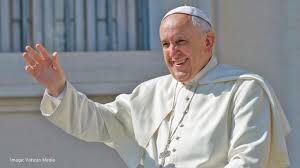The concept of the common good is one of the cornerstones of the Catholic Church’s social teaching. Pope Francis, in his recent message to the “Dialogue on Common Good: Theory and Practice” organised by the Pontifical Academy for Life, emphasised its critical role in addressing the complex challenges of our time. While this universal principle holds great promise for global application, it has particular appeal for Nigeria, a nation brought down to its knees by deep socioeconomic and political crises.
At its core, the common good demands that society prioritize the well-being of all individuals, particularly the most vulnerable. In the Nigerian context, this means confronting issues such as extreme poverty, unemployment, political instability, and systemic corruption. Despite being Africa’s largest economy and a nation rich in resources, Nigeria’s inability to ensure equitable access to basic services like healthcare, education, and security undermines the collective welfare. The disparity between the wealthy elite and the impoverished majority continues to widen, eroding trust in government and fostering a sense of alienation among citizens. Nigeria’s political climate is characterized by ethnic tensions, nepotism, and policies that often favour narrow interests over the collective welfare. In his message, Pope Francis warned against reducing the common good to a mere political or social idea, detached from the lived experiences of individuals. For Nigeria, this is a wake-up call to move beyond rhetoric and embrace governance that genuinely seeks to uplift every citizen.
One way to rethink the common good in Nigeria’s context is through inclusive governance that prioritises transparency and accountability. When leaders make decisions based on the collective interests of their constituents rather than personal or regional gain, the common good transitions from abstract ideology to transformative action. This requires a deliberate effort to bridge the gap between policy and practice, ensuring that development initiatives target those most in need. For instance, despite numerous programs aimed at poverty alleviation, over 70 million Nigerians still live below the poverty line. Addressing this requires a systemic approach that combines economic growth with social justice.
Additionally, Pope Francis’s engagement with Professor Mariana Mazzucato, an advocate of the “economics of innovation and public value,” stresses the need for economic models that serve society as a whole. For Nigeria, adopting such an approach means prioritizing investments in sectors that directly impact human development—education, healthcare, and clean energy. The oil sector, which dominates Nigeria’s economy, has often been a source of corruption and environmental degradation, particularly in the Niger Delta. An economy driven by the common good would transition from resource dependency to diversification, promoting industries that create jobs and sustain the environment. Moreover, taxation policies should be reformed to ensure that the wealthy contribute their fair share to social development, reducing the burden on already struggling communities.
More so, Pope Francis’s emphasis on “universal fraternity” as a warm, relational understanding of the common good offers Nigeria an alternative to its fragmented social fabric. Ethnic and religious divisions have been weaponized for political gain, leading to violent conflicts and a fractured sense of national identity. However, the pursuit of the common good requires Nigerians to embrace their shared humanity, fostering dialogue and collaboration across tribal and religious lines. Initiatives like community policing and interfaith forums can promote trust and cooperation, creating an environment where collective interests outweigh individual biases.
Civil society organizations and faith communities have a critical role to play in advancing the common good in Nigeria. The Church, in particular, can act as both a moral compass and a catalyst for action. Through social teachings that prioritize justice, equity, and human dignity, the Church can inspire citizens to demand better governance and hold leaders accountable. Programmes such as Catholic charities and advocacy for the poor can also serve as tangible expressions of the common good, offering hope to those left behind by the state.
In his message, Pope Francis lamented the inability to look beyond individual interests, warning that such short-sightedness breeds division and conflict. For Nigeria to truly embrace the common good, it must adopt a shared vision of progress, one that prioritizes human dignity over personal gain. This requires leaders to lead with integrity, citizens to engage with courage, and institutions to operate with fairness.
The challenges are immense, but so too is the potential for transformation. By rooting its policies and practices in the principle of the common good, Nigeria can begin to heal its divisions, strengthen its institutions, and ensure that every citizen has the opportunity to thrive. As Pope Francis reminds us, the common good is not merely an ideal but a practice—a call to build a society where all can flourish together.







































